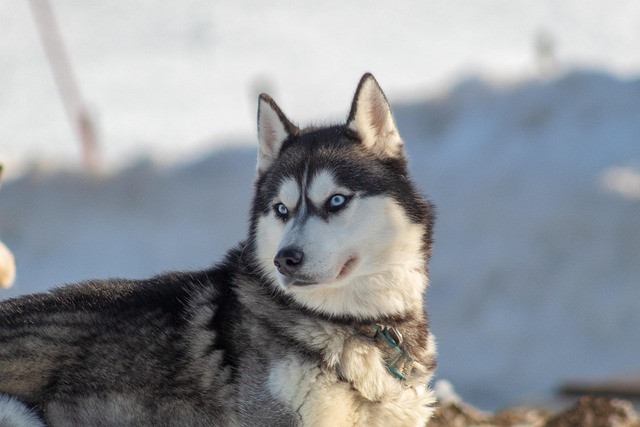
What is glaucoma in a dog?
You might notice your dog squinting more at mealtime or avoiding bright sunlight—these small changes could be early signs of a serious eye condition.
I’ll start with a worrying scenario of a new owner almost feeding their pup a dangerous fruit, explain why certain fruits are toxic to dogs (focusing on harmful compounds), share key fruits to avoid and safe alternatives, and weave in compliance and lifestyle tips.
I stood in my friend Lena’s Seattle kitchen last Tuesday, watching her reach for a handful of grapes to toss to her 8-month-old Australian Shepherd, Koda. “Wait—grapes are bad for dogs!” I said, as she froze mid-air. “Really? I had no idea. What fruit shouldn't a dog eat, and how do I keep him safe?” she asked, quickly putting the grapes back. If you’re a new U.S. dog owner who loves sharing snacks with your pup, knowing which fruits to avoid isn’t just “good to know”—it’s life-saving. Some common fruits contain toxins that damage dogs’ organs, even in small amounts, and mixing them up can lead to emergency vet visits.
To understand what fruit shouldn't a dog eat, let’s break down the science of canine toxicity. Lena’s vet, Dr. Carter, explained that dogs’ bodies process chemicals differently than humans—substances that are harmless to us can be deadly to them. Grapes and raisins, for example, contain an unknown compound that causes sudden kidney failure in dogs; even one grape can make a small pup sick. Avocado has persin, which damages their heart and lungs. These aren’t “just stomachaches”—they’re life-threatening issues. Koda would have loved the sweet taste of grapes, but his body can’t break down the toxin. Unlike “bad behavior,” accidental fruit ingestion is a crisis, not a mistake to scold. Punishing a dog for eating something toxic (if Koda had snuck a grape) violates U.S. animal welfare standards; he wasn’t being naughty—he followed his nose, and our job is to keep dangerous fruits out of reach.

Here’s what fruit shouldn't a dog eat, and how to protect your pup (using what Lena learned for Koda): First, the “never-feed” list (non-negotiable). Dr. Carter emphasized four big ones: Grapes/raisins (kidney failure), avocado (heart/lung damage), cherries (pits have cyanide, which poisons blood cells), and citrus fruits in large amounts (lemon/lime oil irritates their stomach). Lena cleared her counter of grapes and moved avocados to a high shelf—Koda’s tall enough to reach the counter, so she uses a dog-proof container for snacks. Second, watch for “hidden” toxins (prep matters). Apple seeds, peach pits, and plum pits have cyanide too—so when she gives Koda apples (safe!), she cores them completely. She also avoids fruit salads with added sugar or yogurt (some dogs are lactose intolerant). Third, swap for safe alternatives (satisfy their sweet tooth). Instead of grapes, she gives Koda frozen blueberries; instead of avocado, mashed banana. He loves these, and they’re packed with vitamins—positive reinforcement that safe snacks taste just as good. Fourth, know the signs of trouble (act fast). If Koda had eaten grapes, symptoms like vomiting, lethargy, or no appetite would show up in 12–24 hours. Lena saved her vet’s after-hours number in her phone—emergencies wait for no one.
For apartment living and community norms, these habits keep Koda safe: Lena keeps a “dog-safe snack bin” in her pantry (labeled so guests know what’s okay) and a “toxic list” on the fridge. On walks, she carries biodegradable poop bags (Seattle fines $175 for leaving messes) and keeps Koda on a short leash near fruit trees—cherry pits on the sidewalk are a hidden risk. She also tells dog-sitting friends about the “never-feed” list, especially avocados (a common toast topping). Never skip vet checkups: Koda’s rabies vaccine is up to date (mandatory nationwide), and Dr. Carter did a quick kidney check during his last visit—peace of mind that he’s healthy. He also reminded her that even “natural” fruits can be toxic, so when in doubt, “ask first, don’t feed.”
A week later, Lena texted me a photo: Koda crunching on a seedless apple slice, tail wagging. What fruit shouldn't a dog eat? For Koda, it’s grapes, avocados, and cherry pits. For your pup, it’s about knowing the toxic list, keeping dangerous fruits out of reach, and swapping for safe options. Snacking with your dog should be joyful—not stressful—and that starts with knowing what to avoid.

You might notice your dog squinting more at mealtime or avoiding bright sunlight—these small changes could be early signs of a serious eye condition.

Let’s set the scene: It’s a sweltering Phoenix afternoon—105°F outside—and you rushed your 2-year-old Lab mix, Cooper, on a quick walk to “get it over with.”

Let’s get real: You’re in your Miami apartment, watching your 3-year-old Corgi, Loki, struggle to climb the stairs to your second-floor unit.

Many dog owners brush off occasional scratching as just “dog behavior,” but persistent itching often signals something more—like a food allergy.

You might first notice your dog scratching more than usual—chewing at their paws until the fur looks thin, or rubbing their face against the couch nonstop.

Let’s be real: You’re standing in your Chicago apartment, watching your 3-year-old Beagle, Max, huff and puff just to climb onto the couch.